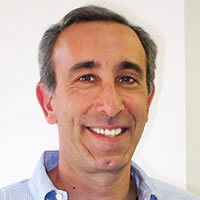Program Coordinator, Monday Night Law
Editor, Alternatives to the High Cost of Litigation
The New York City Bar Association sits just a few blocks south of Manhattan’s geographic center point, which is near Central Park. The heart of the communities the Association serves radiates from this center, from West 44th Street and across the five boroughs, and beyond, throughout the state, and our neighbors across the border lines, and then across the country.
Our Association community is best seen by viewing its members’ commitment and service to the larger communities so effectively, and over its long history.
Primarily, members come to the bar association to improve the legal community by focusing on maintaining the highest standards of practice, from a wide variety of perspectives and disciplines.
Many focus on activities that emphasize one of the Association’s core missions, “to uphold the rule of law and access to justice in support of a fair society and the public interest in our community, our nation, and throughout the world.”
The Association connects the members of the legal community to the people of New York through the association’s City Bar Justice Center (CBJC)—helping our fellow citizens across communities while at the same time broadening members’ own legal practices.
Among the many CBJC projects and programs, the Monday Night Law (MNL) program provides a singular opportunity for these communities to connect each week. MNL allows New Yorkers to visit the bar association and discuss their legal problems with volunteers who are trained to help.
Under the CBJC’s auspices and directed by the Association’s Legal Referral Service (LRS), MNL has connected the legal community with the public, for free, for 29 years, attempting to assist people in sorting out their issues and take positive steps toward resolution.
The program was developed to address a community problem that big companies saw in the courts: unrepresented individuals facing claims and no representation, with little idea of how to resolve their problems or even find anyone to help them.
Sure, companies were concerned about unpaid bills and their own mounting litigation expenses. But they were also concerned with the paralysis in the courts, for themselves and for those who had navigated and engaged the judicial system but whose cases had stalled.
The New York state court system has changed considerably over the past three decades and is now well equipped to address pro se litigants.
The Association also has responded. Some pro se individuals have sought guidance from the Association, and have been assisted by volunteers on Monday nights, 11 months a year, in the Stimson and Kaye rooms on the ground floor.
The LRS screens and schedules 30-55 clients each week, and more than 1,200 people are counseled annually. There are currently more than 145 MNL volunteers.
The goal is to help the individuals identify the steps that they can take on their own to solve their problems. Or, if needed, to help them find appropriate legal help, which would begin with a referral back to the LRS panel members, or to the resources at LawHelpNY.org, which the Association also helped develop.
From MNL’s clinic description:
The public often views the legal system as a place for large corporations to settle their disputes or for individuals accused of crimes. Many people either cannot afford legal counsel and consequently believe certain problems are beyond their means, or are uncertain about obtaining legal assistance, guidance, and counseling to help resolve a particular problem. As a result, people become disenchanted with the legal system and either endure needless and unjust hardship, or give up on solvable problems.
MNL addresses (i) the public’s increasing need for affordable and accessible legal assistance and (ii) the compelling need for additional pro bono outlets for attorneys.
It’s built into the MNL charter documents: The program is in part established to serve Association members who want to increase their service to the community as part of their pro bono commitments, but have concerns about full litigation representation. With MNL training, volunteers can bridge that gap, and provide community service.
But it’s really about community building. And it’s one key example of the core of the Association’s work, at the center point of the city and in service of our surrounding communities–a part of the successful mission for 150 years.

